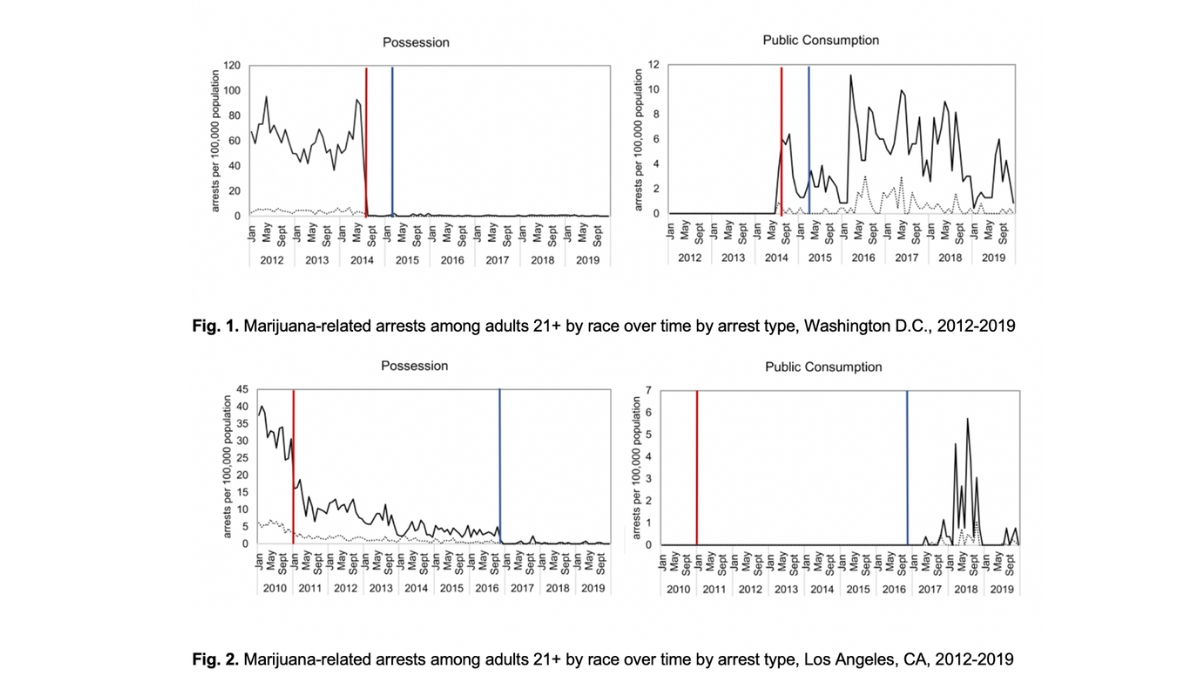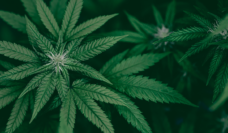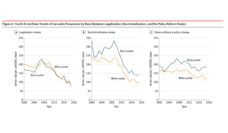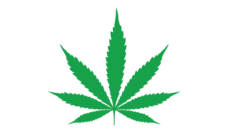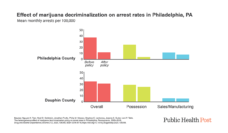When the U.S. War on Drugs started in 1971, arrests for minor drug offenses soared. Since 1980, drug-related arrests have tripled to approximately 1.16 million annually. One in five people are currently incarcerated for drug-related offenses, and 40% of all drug-related arrests were for marijuana alone in 2018.
Cannabis laws are more forgiving now, but not for all. Arrests for possession have decreased nationally over the past decade as recreational use of cannabis has been legalized in 23 states and decriminalized in 8 states. But Black individuals are still 3.6 times more likely to be arrested than White individuals for cannabis charges.
Dr. Spruha Joshi and colleagues mapped the changing legal status of cannabis from decriminalization to legalization. They also analyzed cannabis-related arrests between Black and White people for possession and possession with intent to distribute in Washington D.C. and Los Angeles, CA between 2010 and 2019.
The graphs above show a sharp decrease in possession-related arrests among Black individuals (solid black line) versus White individuals (dashed line) in both Washington D.C. and Los Angeles when new policies decriminalized (red) and legalized (blue) cannabis use. Conversely, arrests for public consumption sharply increased when legalization permitted possession but did not permit legal public use.
Once the laws changed, there was a significant reduction in racial disparity for cannabis-related possession arrests in both cities. Despite this, additional arrests were made for public consumption, with racial differences remaining steady.
As policies work toward legalization of cannabis and its legal impacts, the authors assert more must be done to ensure racial equity. They recommend a focus on interventions that reduce likelihood of public consumption arrests (like Massachusetts’ designated social consumption sites) and direct attention at structural forces that are contributing to ongoing stark disparity in drug arrest rates.
Databyte via Spruha Joshi, Samantha M. Doonan, and John R. Pamplin II. A tale of two cities: Racialized arrests following decriminalization and recreational legalization of cannabis. Drug and alcohol dependence, 2023.









